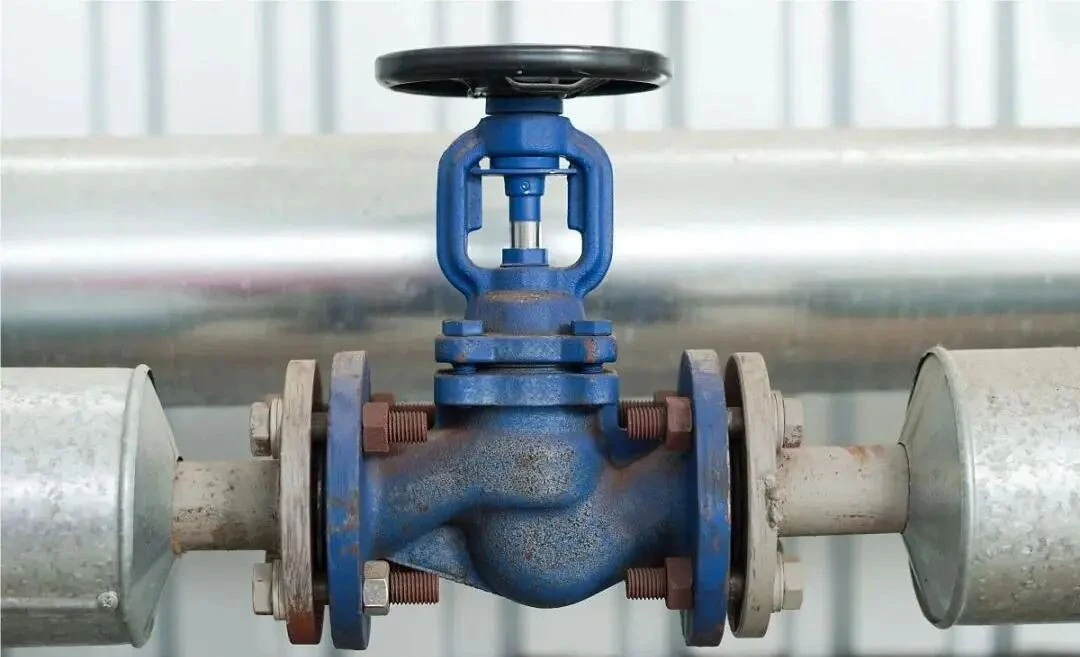Advantages of Cast Iron Valves
Cast iron valves are critical components in industrial fluid control systems, widely used in various fluid pipelines for functions such as regulation, isolation, distribution, and backflow prevention. The widespread application of cast iron valves is primarily attributed to their unique advantages.
Advantages of Cast Iron Valves

1. Material Superiority
Cast iron valves are typically made from high-quality gray cast iron or ductile iron, which possess excellent mechanical properties, wear resistance, and corrosion resistance. Cast iron valves have a long service life at normal temperature and pressure, with relatively low demands on fluid media, making them adaptable to various environments and usage scenarios.
2. Excellent Sealing Performance
Cast iron valves employ precision manufacturing processes, with finely machined sealing surfaces between the valve seat and disc, ensuring tight coordination to effectively prevent fluid leakage. Furthermore, cast iron valves can further enhance sealing performance through methods such as adding sealing fillers, ensuring stable operation of fluid systems.
3. Flexible Operation
Cast iron valves typically employ rotary or lift-type operating mechanisms, requiring minimal operating torque and providing flexible switching, facilitating maintenance and adjustment. Moreover, cast iron valves exhibit fast opening and closing speeds, enabling quick response to changes in fluid systems, and meeting the demands for rapid cutoff and regulation.
4. Versatility
Cast iron valves can be designed into different structures and specifications according to various usage requirements, such as globe valves, gate valves, and ball valves. Additionally, cast iron valves can select different materials and sealing structures based on different media, meeting the requirements of various fluid media.
5. Safety and Reliability
During the design and manufacturing process, cast iron valves strictly adhere to relevant national standards and specifications, ensuring the safety and reliability of products. Valve seats and discs are made of high-strength materials capable of withstanding high pressure and temperature, ensuring the stable operation of fluid systems. Furthermore, cast iron valves possess safety features such as fire resistance and explosion prevention, providing robust protection for industrial production.
Conclusion
Cast iron valves play a significant role in fluid control systems due to their unique material advantages, excellent sealing performance, flexible operation, broad versatility, and safety and reliability characteristics. With the continuous advancement of technology and industrial development, cast iron valves will continue to be optimized and perfected, providing more efficient, reliable, and intelligent solutions for fluid control.
Advantages of Cast Iron Valves

1. Material Superiority
Cast iron valves are typically made from high-quality gray cast iron or ductile iron, which possess excellent mechanical properties, wear resistance, and corrosion resistance. Cast iron valves have a long service life at normal temperature and pressure, with relatively low demands on fluid media, making them adaptable to various environments and usage scenarios.
2. Excellent Sealing Performance
Cast iron valves employ precision manufacturing processes, with finely machined sealing surfaces between the valve seat and disc, ensuring tight coordination to effectively prevent fluid leakage. Furthermore, cast iron valves can further enhance sealing performance through methods such as adding sealing fillers, ensuring stable operation of fluid systems.
3. Flexible Operation
Cast iron valves typically employ rotary or lift-type operating mechanisms, requiring minimal operating torque and providing flexible switching, facilitating maintenance and adjustment. Moreover, cast iron valves exhibit fast opening and closing speeds, enabling quick response to changes in fluid systems, and meeting the demands for rapid cutoff and regulation.
4. Versatility
Cast iron valves can be designed into different structures and specifications according to various usage requirements, such as globe valves, gate valves, and ball valves. Additionally, cast iron valves can select different materials and sealing structures based on different media, meeting the requirements of various fluid media.
5. Safety and Reliability
During the design and manufacturing process, cast iron valves strictly adhere to relevant national standards and specifications, ensuring the safety and reliability of products. Valve seats and discs are made of high-strength materials capable of withstanding high pressure and temperature, ensuring the stable operation of fluid systems. Furthermore, cast iron valves possess safety features such as fire resistance and explosion prevention, providing robust protection for industrial production.
Conclusion
Cast iron valves play a significant role in fluid control systems due to their unique material advantages, excellent sealing performance, flexible operation, broad versatility, and safety and reliability characteristics. With the continuous advancement of technology and industrial development, cast iron valves will continue to be optimized and perfected, providing more efficient, reliable, and intelligent solutions for fluid control.
Previous: 10 Common Problems Encountered in Valve Applications
Next: What Valves Are Needed for A Sewage Treatment Plant?
Next: What Valves Are Needed for A Sewage Treatment Plant?




